Netherlands accuses Iran of targeting dissident on its soil
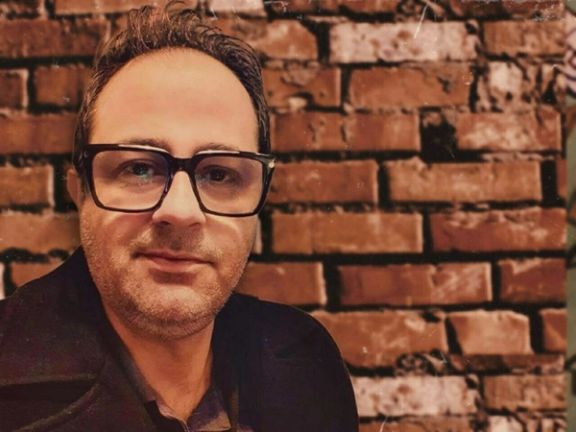
The Netherlands summoned Iran's envoy on Thursday after Dutch intelligence accused Tehran of an attempted assassination of an Iranian dissident in the country.

The Netherlands summoned Iran's envoy on Thursday after Dutch intelligence accused Tehran of an attempted assassination of an Iranian dissident in the country.
It is likely that Iran ordered the attempted assassination of an Iranian activist Siamak Tahmasbi in Haarlem, Netherlands, in the summer of 2023, the agency’s annual report on Thursday of the General Intelligence and Security Service (AIVD) said.
An attempted assassination in Madrid of former Spanish lawmaker Alejo Vidal-Quadras, a vocal critic of the Islamic Republic, at the end of 2023 was also attributed to Iran, Dutch news outlet Nieuwsuur added citing the report.
"Iran used a tried and tested method in both cases: using criminal networks to silence opponents of the regime," Nieuwsuur's report said citing AIVD in reference to the alleged assassination attemp against Tahmasebi and Vidal-Quadras.
"This makes it difficult to prove under criminal law that the order actually came from Tehran," it added.
Last June, French daily Le Monde reported of the assassination attempt against Tahmasbi.
The report said that on June 6 2023, Tahmasebi noticed two men attempting to enter his home. Tahmasebi alerted the police, who arrived in time to arrest the armed intruders. The northern Netherlands prosecutor's office confirmed the arrests and the possession of firearms by the intruders.
One of the two suspects, Mehrez Ayari, is a 38-year-old Tunisian criminal from Villejuif, Val-de-Marne, France. Ayari had been sought by French police since August 2022 and is accused of murdering a cannabis dealer.
Nieuwsuur reported that the two detained were in contact by phone with a third man, who sent them instructions. The report added that the third person who allegedly directed them by telephone on behalf of Iran remains at large.

The leader of a Swedish criminal network accused of assisting Tehran in attacks on Israeli-linked targets in Europe is currently living in Iran under the protection of the Islamic Revolutionary Guard Corps (IRGC), sources told Iran International.
Rawa Majid received funds from Iran’s embassy in Denmark to help coordinate attacks against Israeli diplomatic facilities in Copenhagen and Stockholm, according to a source familiar with the matter inside the IRGC.
The source also said the gang leader travels between Iran and Afghanistan for operations overseen by the IRGC.
Majid leads a criminal group, Foxtrot, recently sanctioned by the UK and the US for its alleged role in orchestrating attacks on Israeli interests. Both governments accused the group of working as a proxy force for Iran in Europe. Tehran has denied the charges.
"Iran’s brazen use of transnational criminal organizations and narcotics traffickers underscores the regime’s attempts to achieve its aims through any means, with no regard for the cost to communities across Europe,” US Treasury Secretary Scott Bessent said in a statement in March as the US sanctioned Majid and Foxtrot.
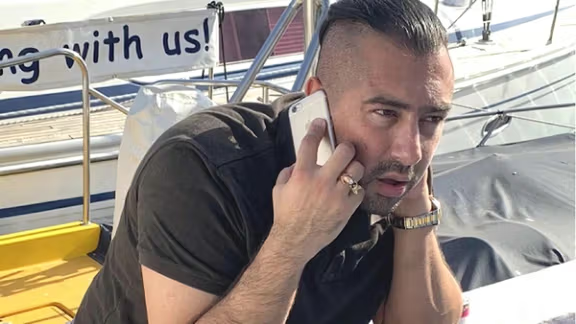
The US Treasury said the group has carried out operations targeting Israeli and Jewish institutions, including an attempted bombing outside the Israeli embassy in Stockholm and grenade attacks near the Israeli embassy in Copenhagen in October 2024.
The attacks are part of an apparent broader strategy that has alarmed European security services. In a December 2024 report, Bloomberg detailed how Iran-affiliated groups have increasingly recruited local criminals — including minors — to carry out assaults on Jewish and Israeli institutions across Europe.
Iran’s expanding covert footprint in Europe is linked to the broader regional conflict between Israel and Iranian proxy forces, Bloomberg reported, and the strategy may be aimed at fueling social tensions in countries already divided over immigration and integration.
Sweden’s Security Service (Säpo) and Israeli intelligence agency Mossad have both identified the Foxtrot criminal network as one of the groups recruited by Tehran for sabotage operations in Europe.
While Iranian officials deny using criminal organizations abroad, leaders of the Islamic Republic have repeatedly praised attacks on Israeli interests globally.

Enforcing Iran's new hijab law is the top priority for the parliamentary cultural committee, its spokesperson said as authorities come under mounting conservative pressure to implement legislation expanding surveillance and penalties.
“A group of devout citizens has a rightful demand, and that is the enforcement of the hijab law — a demand that holds value for the Islamic system,” said spokesman Ahmad Rastineh on Thursday.
The law was passed by parliament in September 2023 but is yet to be fully enforced as the government tries to avoid mass backlash. It mandates harsh penalties for women and girls who defy compulsory veiling and has been branded by the UN as amounting to gender apartheid.
Punishments under the strict new law include travel bans, social media restrictions, prison sentences, lashes, and fines. It also criminalizes promoting hijab resistance.
The legislation was introduced following mass protests triggered by the death of Mahsa Amini in police custody in 2022 which led to nationwide hijab rebellion and a loss of control by authorities.
Although the law’s enforcement was postponed in December following public outcry and international pressure, calls for its immediate implementation have intensified.
Last month, a group of pro-hijab activists staged a sit-in outside parliament, demanding the law be enacted. The protest, which coincided with Quds Day, was dispersed by police on the grounds that it lacked official authorization.
As measures to enforce hijab continue, a recent cooperation agreement was signed between Iran’s police and the education ministry which has sparked outrage from teachers’ unions.
Critics say the deal, which allows police input on school policies, could militarize schools and enforce hijab compliance among students.
“Teachers across the country will not allow schools to be turned into military barracks,” said the Iranian Teachers' Trade Association.
“This is a degrading and alarming stance,” added Mohammad Habibi, the group’s spokesman, accusing the education minister of surrendering the civilian space of education to security forces.
Many women around the country now openly reject the compulsory headscarf, long tunics, and trousers mandated by Iran’s Shariah law. Acts of defiance have become increasingly visible, with women frequently seen unveiled, singing, and dancing in public as a challenge to the religious establishment.
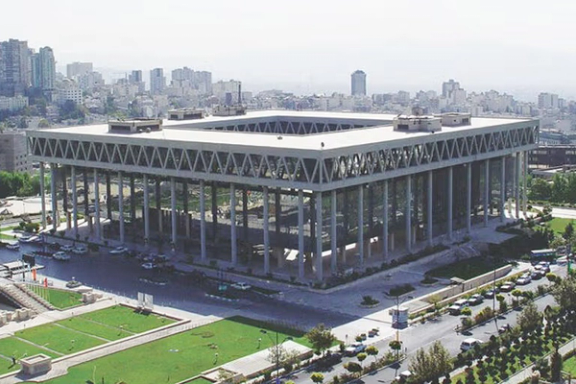
Iranian state television dismissed several senior staff members and triggered a legal crackdown after a segment insulting Sunni Islamic figures was broadcast, drawing public outrage and prompting official apologies to contain the fallout.
The controversial broadcast aired Wednesday on Channel One and featured a guest reciting verses disparaging Abu Bakr, the first caliph in Sunni Islam, during a midday segment.
The footage was quickly deleted from IRIB-affiliated platforms, as the broadcaster scrambled to contain the crisis.
In a joint statement from Sunni majority Sistan and Baluchestan, the province's governor Mansour Bijar and the Supreme Leader’s regional representative Mostafa Mohami condemned the broadcast, describing it as offensive to the sacred beliefs of the Sunni community and a source of distress and anger across the Muslim world.
Sunnis make up at least 10 percent of Iran's 88 million population, and Sistan and Baluchestan is one of the few Sunni-majority regions in a predominantly Shiite country.
While they welcomed the swift dismissals and referral of those responsible to the judiciary, they urged systemic reforms and punitive measures to prevent recurrence and called on the judiciary to ensure “deterrent accountability and public transparency,” IRNA reported.
The state broadcaster has removed the channel’s programming director and head of production. Additionally, eight individuals involved in the show’s creation now face criminal charges, as reported by state media.
A special committee comprising representatives from IRIB’s security, legal, and inspection branches has been tasked with investigating the incident further.
“Sowing discord in the Islamic community has no defenders among true Muslims, whether Shia or Sunni,” IRIB chief Peyman Jebeli said. “The error of extremist ignorants is unforgivable."
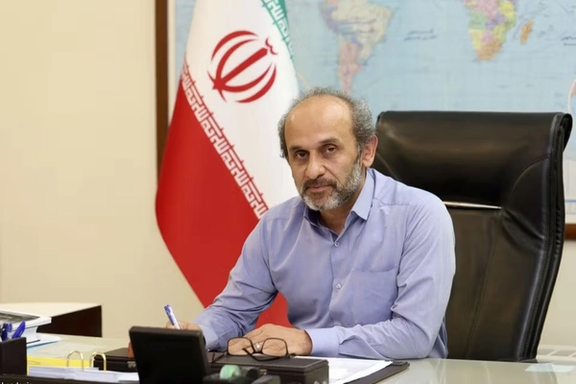
The network also aired a string of unity-themed documentaries on Wednesday featuring Sunni figures, a move seen as an effort to contain the backlash and reaffirm the state’s emphasis on intra-Muslim unity amid sensitive diplomatic engagement with Sunni-led Saudi Arabia as Shia majority Iran tries to cultivate closer ties to its Sunni neighbors.
This is not the first time IRIB has drawn criticism over sectarian or politically provocative content. Last week, Nasim TV apologized for airing a satirical segment mocking Saudi Arabia’s foreign minister just days after a rare visit by the kingdom’s defense chief to Tehran.
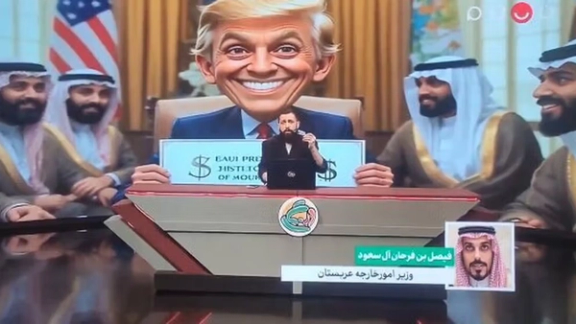
In 2019, IRIB announced the dismissal of the director and broadcast manager of Channel Five following the unvetted airing of controversial remarks by a eulogist during a religious program.
The decision came at the directive of then-IRIB chief Abdolali Ali-Asgari, who said that “safeguarding the dignity of the Islamic ummah” remained a core principle of the broadcaster under the leadership of the Supreme Leader.
Among those dismissed was Javad Ramazannejad, who had been appointed to lead Channel Five less than a year prior to the incident.
With a budget now larger than that of ten ministries and a steadily eroding domestic audience—polls show viewership plummeting from 57% to just 11%—Iran’s state broadcaster faces intensifying scrutiny over its legitimacy, oversight, and role in shaping national identity.
Sunnis, though legal in Iran as a branch of Islam, are among the country's religious minorities which rights groups say are routinely oppressed.
Last year, Human Rights Watch reported that Iranian law denies freedom of religion to minorities such as Baha’is and discriminates against them.
"The government also discriminates against other religious minorities, including Sunni Muslims, and restricts cultural and political activities among the country’s Azeri, Kurdish, Arab, and Baluch ethnic minorities," the report added.
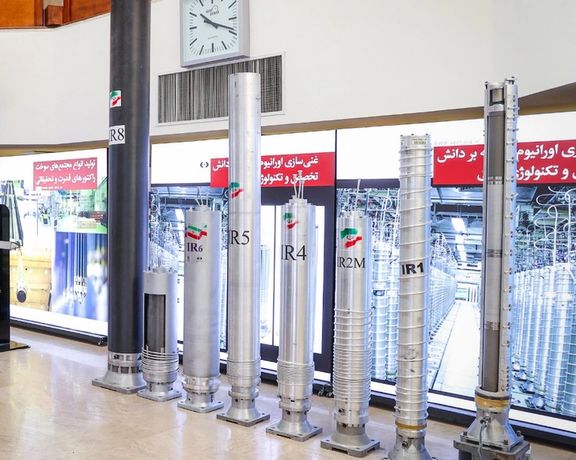
Iran has agreed to allow a technical team from the International Atomic Energy Agency (IAEA) to discuss restoring camera surveillance in Iranian nuclear facilities, the head of the UN nuclear watchdog said on Wednesday.
IAEA Director General Rafael Grossi confirmed the agency would send a technical team to Iran following his visit to Tehran this month.
Grossi said his impression is that the Islamic Republic's leaders are "seriously engaged in discussions... with a sense of trying to get to an agreement."
The UN body would be the party responsible for verifying Iran's compliance with a deal, Grossi said. "This will have to be verified by the IAEA.''
Behrouz Kamalvandi, the spokesman for the Atomic Energy Organization of Iran, said on Friday that a deputy to the head of the UN nuclear watchdog will visit Tehran in the coming two weeks to continue high-level technical talks.
Kamalvandi added that discussions aim to resolve recurring issues in IAEA reports that, according to Tehran, have contributed to mounting political pressure rather than advancing technical cooperation.
Although the IAEA is not formally part of the Iran-US negotiations, Grossi said he had been in direct contact with US President Donald Trump’s special envoy Steve Witkoff regarding ongoing nuclear talks with Iran.
“I have enormous respect for Ambassador Witkoff — I’ve been talking to him,” he said. “I see there is a group of very dedicated professionals behind him.”
Grossi met with Witkoff in Rome last weekend, Bloomberg reported citing a diplomat familiar with the exchange.
Iran’s Foreign Minister Abbas Araghchi said on Wednesday that progress in nuclear talks with the United States could be possible if Washington continues what he described as a constructive approach.
“If the American side continues a constructive approach and avoids unrealistic demands, we can reach a good agreement,” Araghchi said during a visit to Beijing.
Witkoff and Araghchi are due to meet again on Saturday for a third round of negotiations.
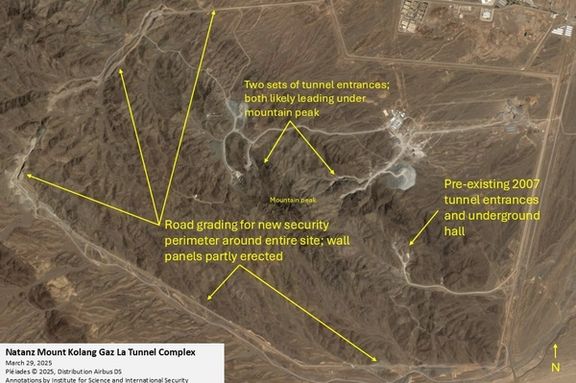
Iran is constructing a new security perimeter around two underground tunnel complexes near its Natanz nuclear site, according to a report by the Institute for Science and International Security (ISIS) released Wednesday.
The sites, buried beneath Mount Kolang Gaz La, have not been accessed by international inspectors.
"The creation of a security perimeter around deeply buried sites associated with uranium enrichment suggests that Iran is increasingly worried about an individual or group seeking to enter the tunnel complexes undetected," the report wrote. "Whether this type of protective barrier would be effective against a well-armed and resourced adversary is unclear."
The report, based on satellite imagery from March, shows wall panels and road grading forming a perimeter that connects with the Natanz facility. One of the complexes is new and deeply buried, likely intended to replace a centrifuge assembly plant destroyed at Natanz in 2020. The other dates back to 2007 and appears to be undergoing upgrades.
David Albright, the institute's president, said the new perimeter suggested that the tunnel complexes, under construction beneath Mt. Kolang Gaz La for several years, could become operational relatively soon.
The complexes could be used to store Iran's stockpile of highly enriched uranium or undeclared nuclear materials, and advanced centrifuges that could quickly purify enough uranium for a bomb, Albright was quoted as saying by Reuters.
The ongoing construction appears to underscore Tehran’s rejection of demands that nuclear talks with the US lead to the full dismantlement of its program, Reuters reported. Iran has maintained it has the right to peaceful nuclear technology.
Israel has not ruled out military action. Prime Minister Benjamin Netanyahu insists any deal must result in the complete dismantlement of Iran’s nuclear infrastructure.